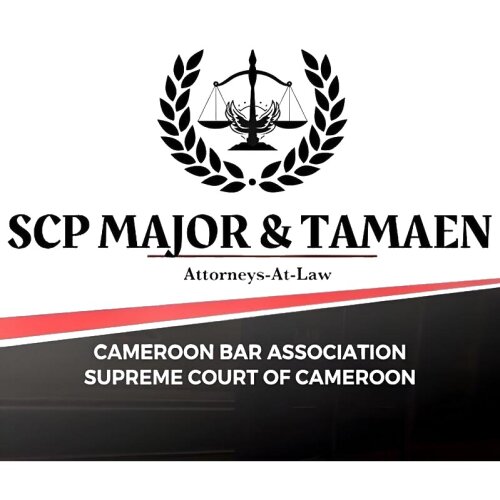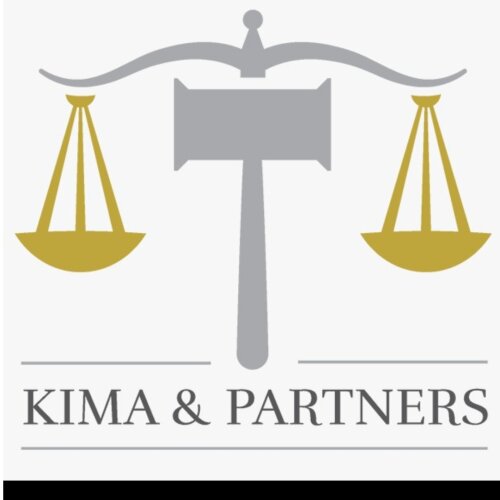Best Energy, Environment & ESG Lawyers in Yaoundé
Share your needs with us, get contacted by law firms.
Free. Takes 2 min.
List of the best lawyers in Yaoundé, Cameroon
Legal guides written by CHI & Partners Law Firm:
- Ship Registration in Cameroon
About Energy, Environment & ESG Law in Yaoundé, Cameroon
Energy, Environment, and ESG (Environmental, Social, and Governance) law in Yaoundé, Cameroon, refers to the legal frameworks and regulations that govern the generation, distribution, and use of energy, as well as the protection of the environment and sustainable business practices. With Cameroon’s rapidly growing economy and population, energy projects and environmental protection are key to national development. ESG laws encourage businesses to operate responsibly, taking into account not just profitability but also their impact on society and the environment.
Why You May Need a Lawyer
Legal assistance in the field of Energy, Environment, and ESG may be required for a variety of reasons:
- You are starting an energy project such as solar, hydroelectric, or fossil fuel operations.
- You face regulatory compliance issues relating to environmental protection or waste management.
- Your business seeks certification or needs to comply with ESG standards for investment purposes.
- You need help understanding or negotiating contracts with energy suppliers or buyers.
- You wish to dispute fines or enforcement actions from environmental authorities.
- You need guidance on how to minimize your business’s environmental impact or carbon footprint.
- You are concerned about land use issues, biodiversity, or natural resource management in relation to your activities.
- You require assistance with reporting and disclosure obligations, especially for companies looking to attract international investment or partnerships.
Local Laws Overview
Cameroon’s legal landscape for Energy, Environment, and ESG is shaped by national laws, regional agreements, and international treaties. Key legal aspects include:
- The 1996 Environmental Management Law, which establishes principles for environmental protection, including permitting, environmental impact assessments (EIA), and pollution control.
- Energy laws regulating electricity generation, distribution, and renewable energy investments, managed through agencies such as ARSEL (Electricity Sector Regulatory Agency).
- Regulations concerning the use and conservation of natural resources such as water, forests, and wildlife, often enforced by the Ministry of Environment, Protection of Nature and Sustainable Development (MINEPDED).
- Requirements for public and private sector actors to perform environmental and social impact assessments before launching certain projects.
- Increasing adoption of ESG frameworks for companies, particularly for those seeking to engage with international markets or lenders, which require transparency and sustainable practices.
- Local government by-laws in Yaoundé may address issues like urban waste management, air and water quality, and noise control.
Frequently Asked Questions
What types of projects require an environmental impact assessment (EIA) in Yaoundé?
Projects that may have significant effects on the environment, such as industrial developments, energy projects, or infrastructure works, require an EIA in accordance with national law. The Ministry of Environment will determine if an EIA is mandatory based on the scope and location of the project.
Which authorities regulate energy projects in Yaoundé?
Energy projects are regulated primarily by ARSEL, the Ministry of Water and Energy Resources, and local authorities for certain aspects like permits and zoning.
Can individuals or companies be fined for environmental violations in Yaoundé?
Yes, individuals and companies can face fines, penalties, or even closure orders for violating environmental laws regarding waste management, pollution, natural resource usage, and non-compliance with prescribed standards.
What is ESG and why does it matter in Cameroon?
ESG stands for Environmental, Social, and Governance criteria. These are used to evaluate a company’s operational impact beyond financial performance. In Cameroon, ESG matters increasingly for attracting international investment and ensuring sustainable, responsible business operations.
How do I obtain an energy project license in Yaoundé?
You must apply with the relevant ministry or regulatory agency, such as ARSEL. This usually involves submitting technical documentation, business plans, impact studies, and proof of compliance with applicable laws.
Are renewable energy projects encouraged by Cameroonian law?
Yes, Cameroon has adopted policies that encourage investment in renewable energy, including solar, wind, and hydro. These projects often benefit from incentives, tax breaks, and simpler licensing procedures.
What should I do if I receive a notice of environmental non-compliance?
Contact a qualified lawyer who specializes in environmental law. You may need to respond formally, demonstrate compliance, or negotiate remedial actions to avoid further penalties.
How are environmental disputes resolved in Yaoundé?
Disputes can be resolved through administrative procedures, negotiations, or litigation in local courts. Mediation or alternative dispute resolution may also be available.
Are there specific reporting requirements for ESG in Cameroon?
While there is no comprehensive, mandatory ESG reporting framework, large companies and those seeking investment are often required to disclose environmental and social impacts according to Cameroonian laws or international standards.
Can local communities participate in environmental decision-making?
Yes, Cameroonian law provides for public consultation in certain environmental matters, especially during the environmental impact assessment process. Community input is important for major project approvals.
Additional Resources
If you need further information or wish to consult with an organization about Energy, Environment, or ESG matters in Yaoundé, consider reaching out to:
- Ministry of Environment, Protection of Nature and Sustainable Development (MINEPDED)
- Ministry of Water and Energy Resources
- ARSEL (Electricity Sector Regulatory Agency)
- Cameroon Bar Association for referrals to qualified legal practitioners
- Chamber of Commerce, Industry, Mines and Crafts of Cameroon (CCIMC)
- International organizations with environmental programs, such as UNDP Cameroon
- Local NGOs specializing in environmental protection and advocacy
Next Steps
If you believe you need legal assistance related to Energy, Environment, or ESG issues in Yaoundé:
- Gather all relevant documents about your project, transaction, or regulatory issue.
- List your questions and concerns clearly before seeking advice.
- Contact a qualified lawyer or legal consultant with experience in Cameroonian energy, environmental, or ESG law.
- Consider reaching out to relevant government agencies if your issue involves permits, compliance, or documentation.
- If needed, schedule an initial consultation to assess your situation and understand your legal options.
Acting early with professional guidance can prevent costly mistakes and help you achieve your business or personal objectives while maintaining compliance with local laws.
Lawzana helps you find the best lawyers and law firms in Yaoundé through a curated and pre-screened list of qualified legal professionals. Our platform offers rankings and detailed profiles of attorneys and law firms, allowing you to compare based on practice areas, including Energy, Environment & ESG, experience, and client feedback.
Each profile includes a description of the firm's areas of practice, client reviews, team members and partners, year of establishment, spoken languages, office locations, contact information, social media presence, and any published articles or resources. Most firms on our platform speak English and are experienced in both local and international legal matters.
Get a quote from top-rated law firms in Yaoundé, Cameroon — quickly, securely, and without unnecessary hassle.
Disclaimer:
The information provided on this page is for general informational purposes only and does not constitute legal advice. While we strive to ensure the accuracy and relevance of the content, legal information may change over time, and interpretations of the law can vary. You should always consult with a qualified legal professional for advice specific to your situation.
We disclaim all liability for actions taken or not taken based on the content of this page. If you believe any information is incorrect or outdated, please contact us, and we will review and update it where appropriate.
Browse energy, environment & esg law firms by service in Yaoundé, Cameroon
Yaoundé, Cameroon Attorneys in related practice areas.













